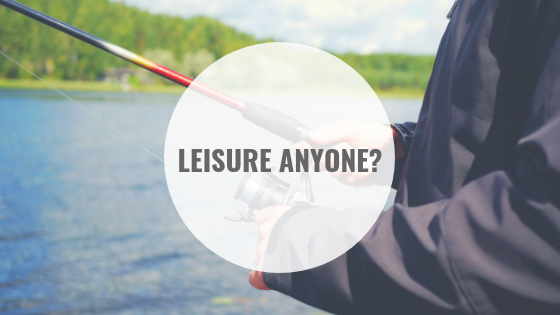Julie Entwistle, MBA, BHSc (OT), BSc (Health / Gerontology)

I took this photo on a recent vacation. I am always thrilled to see resorts and establishments making an effort to include people of all abilities in their offerings.
The recent Olympics and Paralympics remind us of the importance of sport and leisure in our society. These games, and the immense displays of athleticism during the same, inspire people of all ages and abilities to either start, or increase, their participation in sporting activities. Sport is an avenue that provides people with a sense of physical, mental and emotional challenge, camaraderie, a sense of purpose and fun. Whether it be at a competitive level, or a game of pick up on the weekends, sport is one form of enjoyable leisure activity.
Leisure activities are those things we do or engage in during our free time and can be passive or active in nature. Passive leisure activities are those types of activities that we often engage in alone and involve slower paced activities. This can be things like reading, watching a movie or painting. Active leisure activities on the other hand are often completed with others and tend to be faster paced and more physically demanding, including sports, gardening or going skiing. Regardless of the preference for passive or active leisure, in our fast-paced society, the importance of making time for leisure cannot be overstated.
Leisure activities provide us with opportunities to socialize and develop emotionally, as well as provide physical and cognitive development to improve health and well-being. Our participation can also impact those around us as they help us to build skills that support us in both work and life.
However, when we think of leisure, we often think of opportunities that are easy and convenient for most people. Yet, for individuals with disabilities, participating in leisure opportunities, while equally important, is often more difficult. Individuals with disabilities often have less free time due to lengthy morning routines, the increased time it can take to manage daily tasks, and often frequent medical or rehabilitation appointments. Environmental barriers can also be present such as lack of transportation, inaccessible venues, or inherent aspects of the leisure activity that aren’t suited to the individual’s skills or interests.
Occupational therapists recognize the importance of leisure activities for persons with and without disabilities. We work with clients to help explore their interests to help expand their repertoire of leisure activities and find ways to address the different barriers to engaging in these meaningful past times. Whether it be altering the activity so that it is better suited to one’s capabilities, making the environment more accessible, or helping someone with strategies to alter their schedule to include more time for leisure activities, occupational therapists can help people bring more fun back into life.
If you have a disability and would like to expand your leisure opportunities, or try something new, consider some of the following activities that, if modified or locally available, can be enjoyed by all:
- Golf (see the previous post on Golf FORE All )
- Martial Arts or Tai Chi (see the previous posts Martial Arts is All That… and Making Martial Arts More Accessible)
- Yoga
- Sit-skiing (downhill or water)
- Sledge Hockey
- Modified Scuba Programs
- Fishing
- Swimming
- Horticulture
- Cooking classes and education on use of modified kitchen tools
- Hiking or Walking (on paths or rail trails)
- Cycling (pedal or hand biking)
- Scuba or snorkeling
- Curling
- Sailing or rowing…to name a few.
Those are just a small snapshot of examples. For more ideas (including extreme sports such as bungee jumping or skydiving) check out Abilities Magazine, or contact an Occupational Therapist to discuss what might be a good fit!

